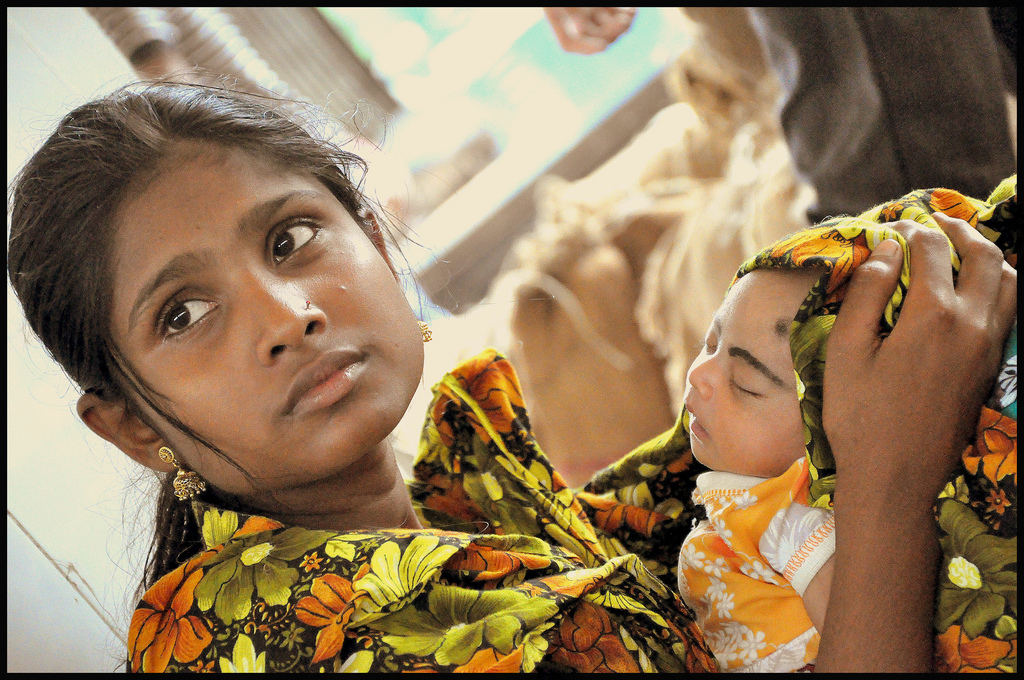The geographic area you grow up in has probably the biggest impact on your values. Definite moral codes vary from country to country. As a result, it can be difficult to claim that beliefs of others are morally corrupt. However, there are universal human rights that cannot be ignored, and should be respected across cultural borders. Forcing children into marriage is something that should be recognized as wrong no matter where you’re from.
According to the Universal Declaration of Human Rights, persons can only enter marriage with full and freely given consent. Based on this alone, the foundation of child marriages collapses. Most countries have a minimum age of consent, meaning if a person is below that age, they cannot, by law, give their consent to being married. Although this is a logical understanding, there are still countries where young people are forced to marry before they can properly give their consent to do so.
Most cases of child marriages occur within families who want to marry off their young girls as early as possible. Often, the driving force behind child marriage is poverty. Many families cannot afford to support each person within their family, so young girls are married off to alleviate the financial stress on themselves, and to potentially give the girls a chance to be taken care of.
The problem with this is that being forced to marry at a young age causes young girls to drop out of school (if they were attending a school at all). This halt in education only continues the cycle of poverty that the girls came from because they have less opportunity to advance financially if they are uneducated. The victims of child marriage also tend to have children very soon into the marriage, so any chance of going back to school to improve one’s chances at upward mobility are nonexistent.
Other problems that arise within child marriages are the various sexual consequences, the increased rate of pregnancy and the complications that come with this increase. The girls who are often forced into child marriage are married off to much older men. So, not only are the girls sexually immature, but they become obligated (by filial duty) to engage in sexual activity with people who are, by most countries’ standards, pedophiles. In addition, a mother’s age plays a large role in the health and wellness of the child and the person giving birth. There are generally very high mortality and morbidity rates for young mothers and their babies. This comes as a huge compromise of safety for millions of girls every year.
Earlier this week, on Oct. 11, various countries celebrated the International Day of the Girl. This, once again, brought the problem of child marriage to the forefront of hot topics. This celebration prompted the reposting of an article from Al Jazeera from May on Theresa Kachindamoto, a Malawi chief who, during the span of her position, has successfully ended 850 child marriages. Kachindamoto dealt with death threats and people mired in tradition in her pursuits to end any instances of child marriage. She worked with other chiefs to change the customary laws to ban child marriages, then she went on to work to change the civil law doing the same while also annulling any existing early marriages in her jurisdiction. She then went above and beyond by paying for the girls to stay in school, or finding sponsors who could do the same. Kachindamoto understands the importance of keeping young girls educated and away from sexual predators, and more people should take a stance like she has.
History has shown that when women are no longer disadvantaged, everyone they come into contact with are better off. This starts early. Keeping young girls in school and educated about finances, family planning and sexual health, all while giving them other academic pursuits, is crucial to the progress and improvement of society as a whole. Women like Kachindamoto are proof that educated women can really change the world. It’s about time for everyone else to get on board.
Hope Hynson is a sophomore psychology major and a member of UMD’s chapter of the NAACP. She can be reached at hopehynson@gmail.com.



